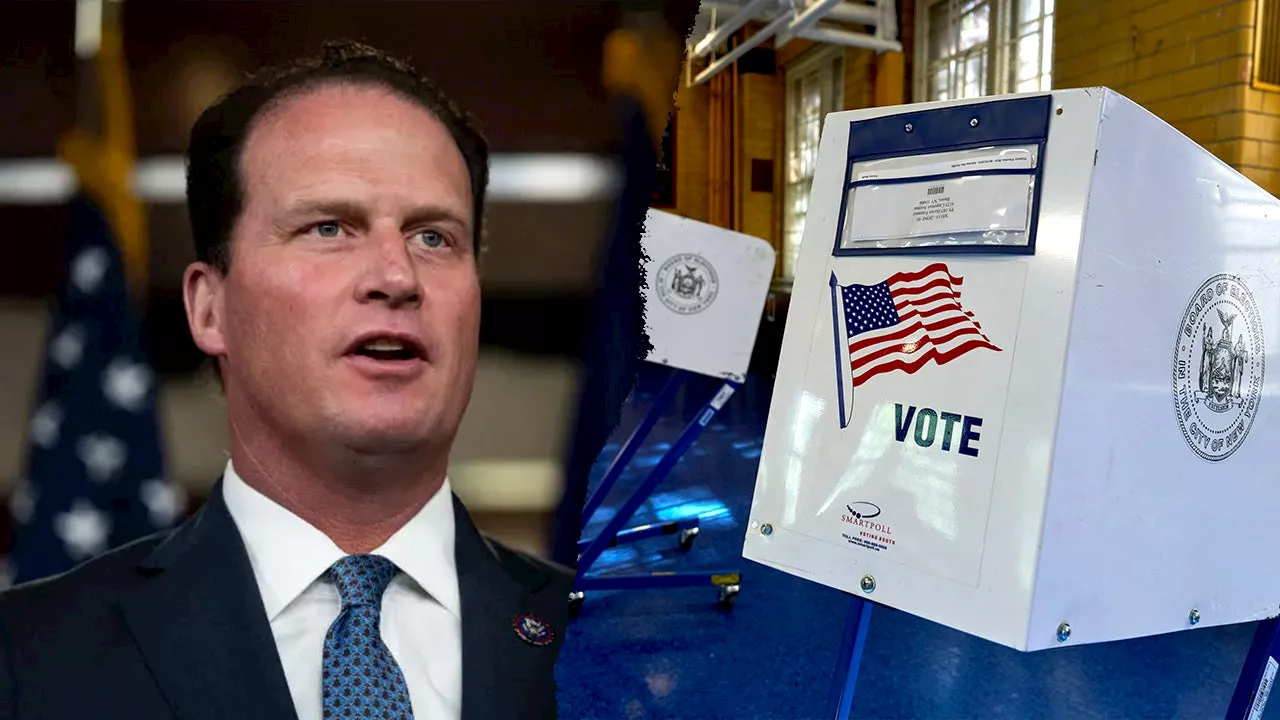House Republicans unveiled a budget resolution aiming to slash $2 trillion from federal spending. The proposal directs various committees to implement spending reductions, including the Committee on Energy and Commerce ($880 billion) and the Committee on Agriculture ($230 billion). Alongside cuts, the plan includes $4.5 trillion in tax cuts and a $4 trillion debt ceiling increase.
House Republicans on Wednesday released a new budget resolution which would cut $2 trillion from the federal checkbook.
Also included in the proposal are $4.5 trillion in tax cuts and a $4 trillion debt ceiling increase. The House Budget Committee is slated to consider the plan Thursday. “There will be ongoing debates and discussions in the coming weeks, and we remain focused on working through the process to deliver on our promises made to the American people,” he added. “There’s still much work to be done, but we are starting on the right path.”
BUDGET FEDERAL SPENDING TAX CUTS DEBT CEILING CONGRESS
United States Latest News, United States Headlines
Similar News:You can also read news stories similar to this one that we have collected from other news sources.
 House Republicans Propose Election Security Bills Targeting Noncitizen VotingHouse Republicans are introducing a new package of election security legislation aimed at preventing noncitizen voting and involvement in election administration. The bills, proposed by GOP lawmakers, include measures to prohibit noncitizen voting in local elections, block noncitizens from assisting in elections, and propose a constitutional amendment to bar noncitizen voting nationwide.
House Republicans Propose Election Security Bills Targeting Noncitizen VotingHouse Republicans are introducing a new package of election security legislation aimed at preventing noncitizen voting and involvement in election administration. The bills, proposed by GOP lawmakers, include measures to prohibit noncitizen voting in local elections, block noncitizens from assisting in elections, and propose a constitutional amendment to bar noncitizen voting nationwide.
Read more »
 House Republicans Propose Taxing Employee Fringe Benefits to Fund Trump Tax CutsHouse Republicans are considering a move to make employer-provided perks like transportation, free food, and on-site gyms taxable income to help offset the cost of President Trump's tax cuts. This proposal, which is still in its early stages, could significantly impact both workers and employers.
House Republicans Propose Taxing Employee Fringe Benefits to Fund Trump Tax CutsHouse Republicans are considering a move to make employer-provided perks like transportation, free food, and on-site gyms taxable income to help offset the cost of President Trump's tax cuts. This proposal, which is still in its early stages, could significantly impact both workers and employers.
Read more »
 House Republicans Propose $4.5 Trillion Tax Cut and $2 Trillion Spending Reduction BudgetHouse Republicans have unveiled a budget resolution that includes significant tax cuts and spending reductions. The plan calls for slashing taxes by up to $4.5 trillion and reducing federal spending by $2 trillion. The resolution also raises the debt limit by $4 trillion and allocates $110 billion for immigration and border security, less than the Senate's proposed $175 billion.
House Republicans Propose $4.5 Trillion Tax Cut and $2 Trillion Spending Reduction BudgetHouse Republicans have unveiled a budget resolution that includes significant tax cuts and spending reductions. The plan calls for slashing taxes by up to $4.5 trillion and reducing federal spending by $2 trillion. The resolution also raises the debt limit by $4 trillion and allocates $110 billion for immigration and border security, less than the Senate's proposed $175 billion.
Read more »
 House Republicans Propose $2 Trillion Budget CutsHouse Republicans unveiled a new budget resolution aiming to slash $2 trillion from federal spending. The proposal mandates various congressional committees, including Energy and Commerce and Agriculture, to implement spending reductions. It also includes $4.5 trillion in tax cuts and a $4 trillion debt ceiling increase. This plan is seen by Republicans as a step towards fulfilling President Trump's America First agenda.
House Republicans Propose $2 Trillion Budget CutsHouse Republicans unveiled a new budget resolution aiming to slash $2 trillion from federal spending. The proposal mandates various congressional committees, including Energy and Commerce and Agriculture, to implement spending reductions. It also includes $4.5 trillion in tax cuts and a $4 trillion debt ceiling increase. This plan is seen by Republicans as a step towards fulfilling President Trump's America First agenda.
Read more »
 House Republicans Propose $2 Trillion Budget CutsHouse Republicans unveiled a budget resolution aiming to slash $2 trillion from federal spending. The proposal directs various congressional committees to identify spending reductions, including $880 billion from the Energy and Commerce Committee and $230 billion from the Agriculture Committee. It also includes $4.5 trillion in tax cuts and a $4 trillion debt ceiling increase. The plan faces scrutiny, with Democrats criticizing the cuts' impact on crucial services and questioning the focus on reducing spending in certain areas while overlooking others like the Department of Defense.
House Republicans Propose $2 Trillion Budget CutsHouse Republicans unveiled a budget resolution aiming to slash $2 trillion from federal spending. The proposal directs various congressional committees to identify spending reductions, including $880 billion from the Energy and Commerce Committee and $230 billion from the Agriculture Committee. It also includes $4.5 trillion in tax cuts and a $4 trillion debt ceiling increase. The plan faces scrutiny, with Democrats criticizing the cuts' impact on crucial services and questioning the focus on reducing spending in certain areas while overlooking others like the Department of Defense.
Read more »
 House Republicans Propose $2 Trillion Budget CutsHouse Republicans unveiled a budget resolution aimed at slashing $2 trillion from federal spending. The plan directs various congressional committees to identify spending reductions, including $880 billion from Energy and Commerce and $230 billion from Agriculture. It also includes $4.5 trillion in tax cuts and a $4 trillion debt ceiling increase. The proposal faces opposition from Democrats who argue that it disproportionately impacts working people and overlooks bloated agencies like the Department of Defense.
House Republicans Propose $2 Trillion Budget CutsHouse Republicans unveiled a budget resolution aimed at slashing $2 trillion from federal spending. The plan directs various congressional committees to identify spending reductions, including $880 billion from Energy and Commerce and $230 billion from Agriculture. It also includes $4.5 trillion in tax cuts and a $4 trillion debt ceiling increase. The proposal faces opposition from Democrats who argue that it disproportionately impacts working people and overlooks bloated agencies like the Department of Defense.
Read more »
